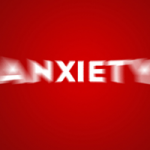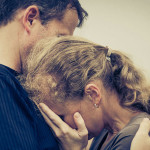Last Updated on May 4, 2023 by Chris Roberts

LEARNING THROUGH MARRIAGE COUNSELING IN NASHVILLE, TN THAT WE BOTH HAVE POWER IN THE RELATIONSHIP
By: Chris Roberts, MACP, LMC-MHSP (Licensed Professional Counselor in Tennessee) Two Trees Counseling Nashville
According to many divorce attorneys, many couples talk about their relationships as if they believe their partner has more power than them. I say unintentionally, because most people don’t consciously think in terms that they have less power or their partner has more power. They say, “I can’t get through to my partner, so I have to scream at them.” Or, they say, “I’m not going to change their mind anyway, so I just nod my head in agreement, or I just check out.” These are common ways that couples express to me they have less power, or sometimes, feel like they have no power at all in the relationship.
HOW DO YOU DEFINE “POWER” IN A RELATIONSHIP?
In a marvelous book about learning to restore trust in our relationships by Mira Kirshenmbaum titled, “I Love You, But I Don’t Trust You,” she writes, “If one person has more power, the other is relatively more helpless. It’s not that mistrust is inevitable, but the risk is inevitable….Trust means that two people take each other’s needs into account. Power means that one of the two people doesn’t have to do that.” (p. 29) Here she describes the problem when there is an imbalance of power and how it can negatively impact a relationship.
WHAT ARE SOME EXAMPLES OF POWER IN A RELATIONSHIP?
Mira does a phenomenal job of describing the most common form of power in a relationship when she writes, “Sometimes, the power balance come from personal power. If she is more emotionally intense and expressive than he is, or if he doesn’t have the slightest qualm about going off on her, that difference will mean that one feels the other has more power and there will be mistrust.” (p.30) In most couples I work with, there is always one partner who is more emotionally expressive than the other. The person being emotionally expressive simply believes they are being themselves, and is not intentionally trying to wield power over their partner. Usually, just the opposite is true: they just simply want to be heard and understood. But, where things really get off track, and mistrust starts to creep in, is when neither partner is aware of the power dynamics at play.
Money is also a certified power imbalance in a relationship when one partner makes or has more money than their partner. Again, it is typically not intentional that the one who has more money has more power. Often, the one who has more money doesn’t even think of it in terms of having more power. But, just ask the partner who has less money, and they will immediately resonate with the feeling of having less power.
WHAT CAN WE DO ABOUT IT THROUGH MARRIAGE COUNSELING?
A good marriage counselor in Nashville, TN will be able to identify and articulate the different power imbalances that are present in your relationship. Sometimes, we are able to correct those power imbalances with specific actions. But oftentimes, there is no real way to correct the imbalance- like with money. What we need more than a fair distribution of power, is an understanding of how we use the power that we have and a careful consideration of the person that has less power. In most instances, just paying attention to and understanding the partner who has less power can be all that is needed offset the inherent power imbalance in a relationship.
Chris Roberts has over a decade of experience working as a marriage counselor in Nashville, TN and would love to discuss any issues you are having with your relationship. Chris can be reached at chris@nashvillecounselor.net, or by phone at (615) 800-9260. Please stay safe and healthy!












